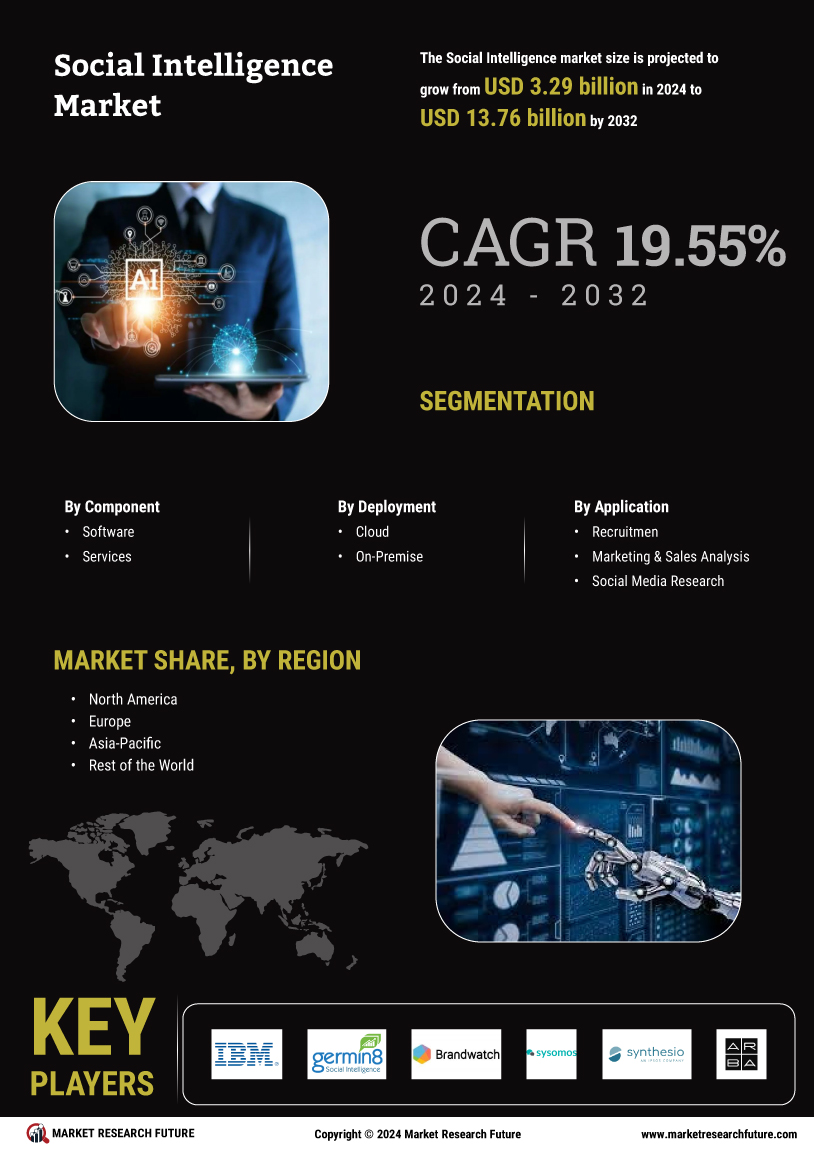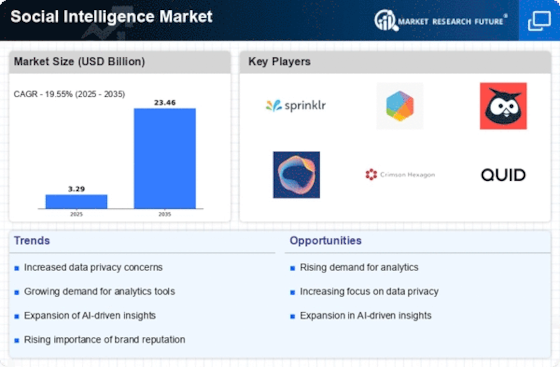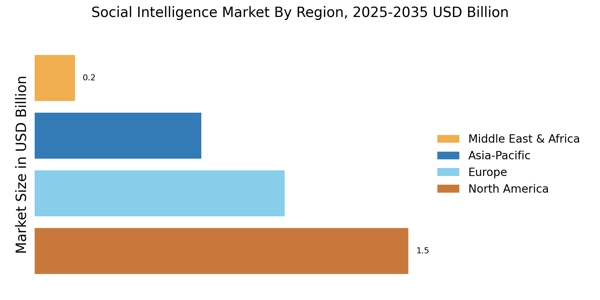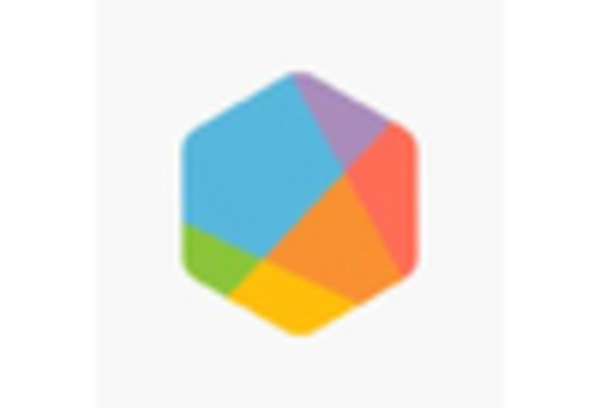Rising Demand for Consumer Insights
The Social Intelligence Market experiences a notable surge in demand for consumer insights. Organizations increasingly recognize the value of understanding consumer behavior and preferences through social media analytics. This trend is driven by the need for businesses to tailor their products and services to meet evolving consumer expectations. According to recent data, the market for social media analytics is projected to reach approximately 9 billion USD by 2026, indicating a robust growth trajectory. Companies are leveraging social intelligence tools to gain actionable insights, enhance customer engagement, and improve brand loyalty. As a result, the Social Intelligence Market is poised for expansion, with businesses investing in advanced analytics solutions to stay competitive in a rapidly changing marketplace.
Advancements in Natural Language Processing
The Social Intelligence Market is significantly influenced by advancements in natural language processing (NLP) technologies. These innovations enable organizations to analyze vast amounts of unstructured data from social media platforms, extracting valuable insights from consumer conversations. NLP tools facilitate sentiment analysis, topic modeling, and trend identification, allowing businesses to understand public opinion and market dynamics better. As NLP technology continues to evolve, its integration into social intelligence solutions is expected to enhance the accuracy and efficiency of data analysis. This trend is reflected in the increasing adoption of AI-driven analytics platforms, which are projected to grow at a compound annual growth rate of over 20% in the coming years. Thus, advancements in NLP are likely to play a pivotal role in shaping the future of the Social Intelligence Market.
Emergence of Influencer Marketing Strategies
The Social Intelligence Market is witnessing a notable shift towards influencer marketing strategies. Brands are increasingly collaborating with social media influencers to reach target audiences more effectively. This trend is driven by the recognition that consumers often trust recommendations from influencers over traditional advertising. Data suggests that influencer marketing can yield an average return on investment of 6.50 USD for every dollar spent, making it an attractive strategy for businesses. As a result, organizations are turning to social intelligence tools to identify suitable influencers, analyze audience engagement, and measure campaign effectiveness. This growing emphasis on influencer partnerships is likely to propel the Social Intelligence Market, as brands seek to harness the power of social media influencers to enhance their marketing efforts.
Increased Focus on Data Privacy and Compliance
The Social Intelligence Market faces growing scrutiny regarding data privacy and compliance. As regulations such as the General Data Protection Regulation (GDPR) and the California Consumer Privacy Act (CCPA) become more stringent, organizations must navigate complex legal landscapes while leveraging social intelligence tools. This heightened focus on data privacy is prompting businesses to adopt ethical data collection practices and invest in compliance solutions. Companies that prioritize data protection are likely to gain consumer trust and loyalty, which can translate into competitive advantages. The market for privacy-focused social intelligence solutions is expected to expand as organizations seek to balance the need for insights with the imperative of safeguarding consumer data. Consequently, the Social Intelligence Market is adapting to these challenges, fostering innovation in privacy-centric analytics.
Growing Importance of Brand Reputation Management
In the Social Intelligence Market, brand reputation management has emerged as a critical driver. Companies are increasingly aware that their online presence significantly impacts consumer perception and purchasing decisions. The proliferation of social media platforms has made it essential for organizations to monitor and manage their brand image proactively. Research indicates that nearly 80% of consumers consider online reviews and social media feedback before making a purchase. Consequently, businesses are investing in social intelligence tools to track sentiment, identify potential crises, and respond effectively to customer feedback. This focus on reputation management is likely to propel the Social Intelligence Market forward, as organizations seek to protect and enhance their brand equity in an interconnected digital landscape.

















